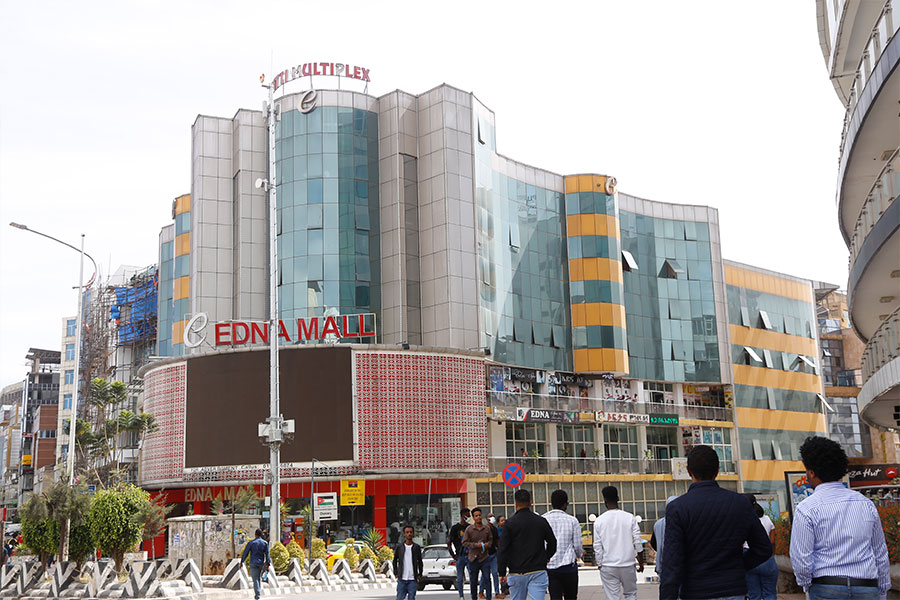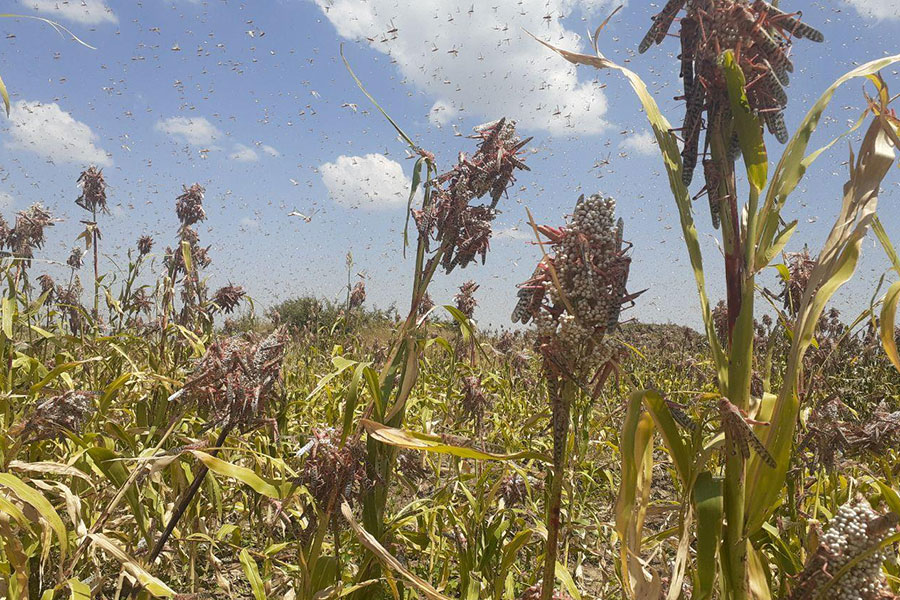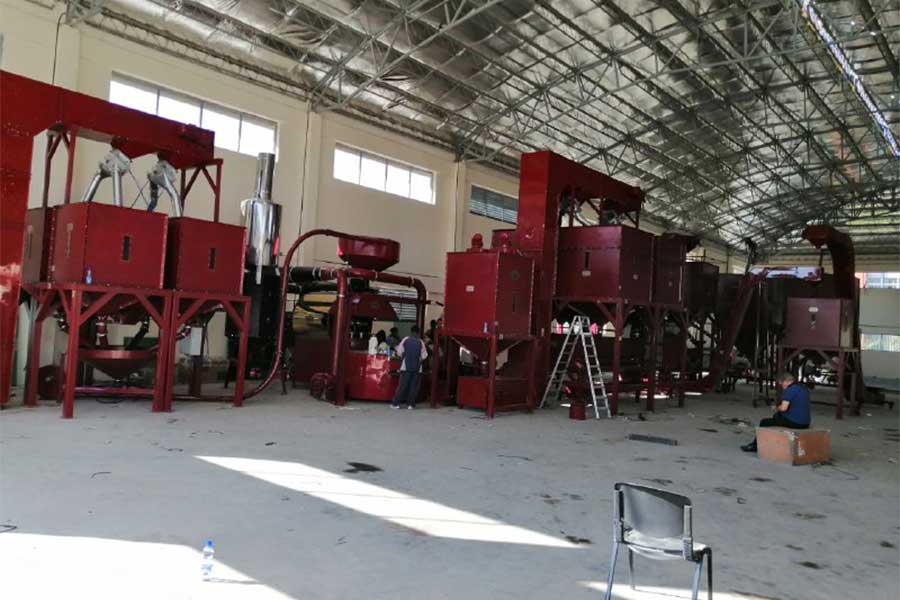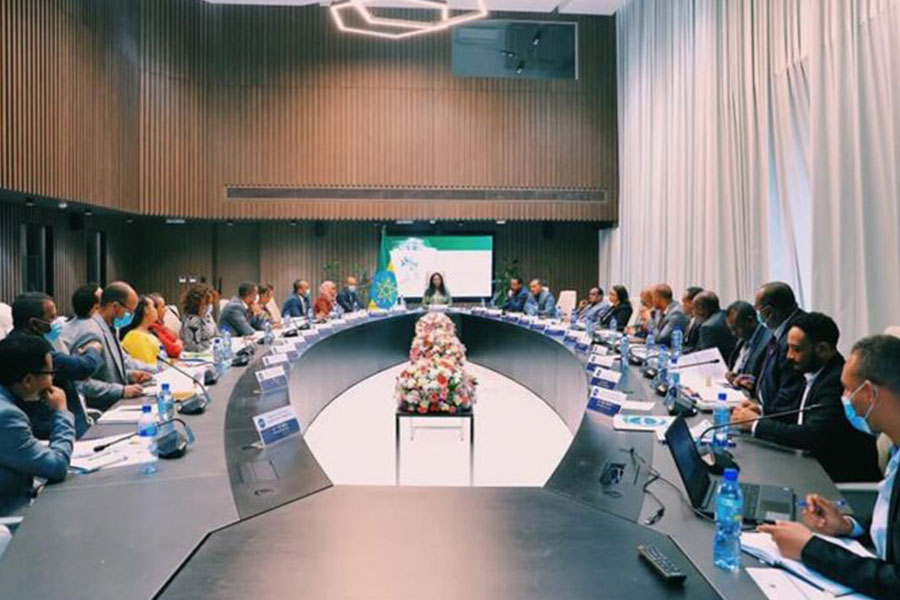
Mayor Adanech Abiebie has won the approval of the Addis Abeba City Cabinet to give reparations to hundreds of farmers in the capital's peripheries who have lost land for infrastructure development, roads and public housing projects. The 45-member cabinet announced its decision to award reparation to over 400 farmers in Lemi Kura and Akaki-Qality districts last month on April 26, 2022.
The farmers who have lost close to 200hct of land for the development of public projects are considered for compensation.
Close to a quarter of the land is located in Lemi Kura, the capital's newest district established through the transfer of weredas from Bole and Yeka districts two years ago. Most of the plots lie in Akaki-Qality, which hosts the Koye Fiche condominium site. It comprises over 10,000 housing units on the southeastern fringes of the capital. Although the units have been completed in Koye Fiche, road works have been stalled due to disputes with farmers who claim ownership over the land.
"Public projects in these areas have been interrupted by the disputes," said Kebede Ata, director of redevelopment and right of way.
Officials from these districts requested the Cabinet for compensation for loss last September. The decision by the Cabinet, which city officials estimate will cost city taxpayers 50 million Br, comes as Mayor Adanech's administration faces increasing demands for similar indemnities from residents. Officials of the Addis Abeba Land Development & Management Bureau say the value of the compensations could grow as more farmers come forward with complaints. Farmers who have lodged complaints beginning in 2016 are eligible for compensation.
An estimated 70,000 farming households are located within the capital's boundaries, mainly in the Bole, Yeka and Akaki-Qality districts, according to a 2017 report from UN-Habitat.
"The Bureau has submitted a budget request to cover the cost," confirmed Kebede.
Compensation paid to farmers a decade ago has not been enough to quell the contention.
Gelana Girma, 66, is among 32,000 peri-urban farmers who were left without recourse upon losing land to urban expansion projects in 2017. A father of six, he lives in Wereda 10 of the Akaki-Qality District. A decade ago, he gave up a 10hct plot inherited from his parents to the Koye Fiche housing project. He is left with two hectares, which he uses to farm wheat and maize for a harvest of 20qtl a year.
“We're completely dependent on the land,” Gelana told Fortune.
He was initially paid 18 Br for a square metre, a reparation for the land ceded. However, Gelana believes the compensation was unfair. His frustration stems from the ballooning costs for the condominium units built on his former land. A two-bedroom unit can fetch over 1.5 million Br.
Legal experts contend Gelana's misgivings are a misconception created by the improper implementation of laws governing the transfer of urban land. Although the misconception is understandable in a country like Ethiopia, where land is treated as a primary economic asset, it is under the ownership of "the state and the people", argued Yehualashet Tamiru, a legal consultant and researcher.
He believes land expropriation is based on legally-acceptable grounds.
“Compensation considers factors like capital and labour costs,” said Yehualashet. “But land isn't included.”
Nonetheless, significant issues provoked public anger and widespread protests beginning in 2016. Legislation that governs the expropriation of land for public use, and the payment of compensation, was amended three years ago. It compels landholders to hand over plots within three months after receiving compensation. However, the experience of farmers like Gelana tells a different story.
He received payment a year after surrendering his land.
Yehualashet concedes that assessing the value of compensation is a complicated and time-taking process. The Council of Ministers passed a regulation two years ago for property valuation to be assessed by independent entities. Despite this, a lack of private valuation firms left the job for experts drawn from various government institutions.
Arba Beyene, a legal expert who worked at the Yeka District Land Management Bureau for three years, had the opportunity to monitor the process closely.
"There's a lack of competent experts to conduct valuations on properties," he said.
However, the City Administration has attempted to set thresholds. A directive issued two years ago puts the compensation value for a square metre of land at 242 Br, while the rate is up to 1,050 Br if the plot is classified as communal grazing land. It should be revised every two years by a committee comprising experts from the Urban Agriculture and Design & Construction Works bureaus.
“The lack of an index listing the updated material cost of construction and inputs is a major challenge in revising the compensation rate,” said Arba.
PUBLISHED ON
Jun 25,2022 [ VOL
23 , NO
1156]

Fortune News | May 07,2022

Radar | Oct 24,2020

Agenda | Oct 17,2020

Fortune News | Dec 28,2019

Fortune News | Nov 19,2022

Dec 22 , 2024 . By TIZITA SHEWAFERAW
Charged with transforming colossal state-owned enterprises into modern and competitiv...

Aug 18 , 2024 . By AKSAH ITALO
Although predictable Yonas Zerihun's job in the ride-hailing service is not immune to...

Jul 28 , 2024 . By TIZITA SHEWAFERAW
Unhabitual, perhaps too many, Samuel Gebreyohannes, 38, used to occasionally enjoy a couple of beers at breakfast. However, he recently swit...

Jul 13 , 2024 . By AKSAH ITALO
Investors who rely on tractors, trucks, and field vehicles for commuting, transporting commodities, and f...

Oct 11 , 2025
Ladislas Farago, a roving Associated Press (AP) correspondent, arrived in Ethiopia in...

Oct 4 , 2025
Eyob Tekalegn (PhD) had been in the Governor's chair for only weeks when, on Septembe...

Sep 27 , 2025
Four years into an experiment with “shock therapy” in education, the national moo...

Sep 20 , 2025
Getachew Reda's return to the national stage was always going to stir attention. Once...